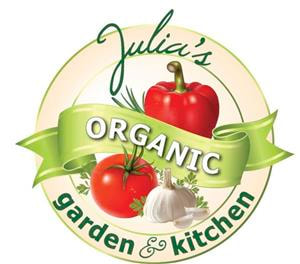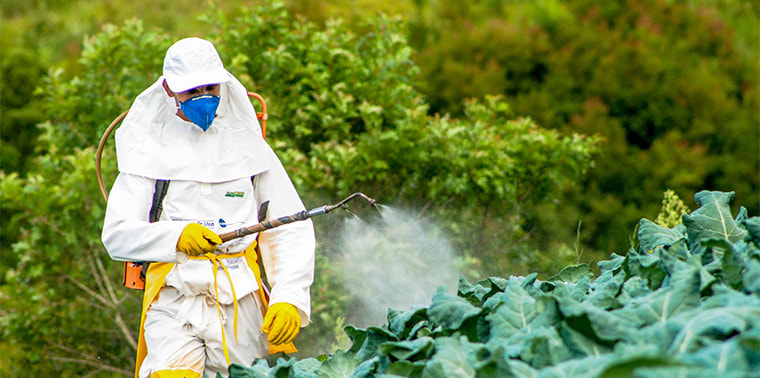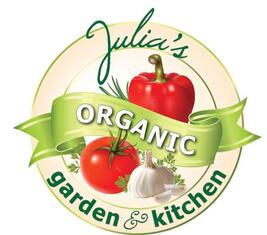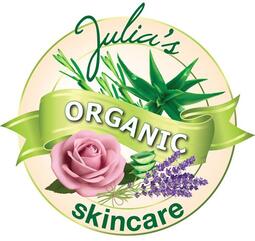|
Do you think that spending money on organic food is a complete waste? Or is it just a new fashion that will fade away very soon? What is “organic” anyway?
1. The difference between organic and non – organic. Organic produce is made without:
Yes, I know, that the Government is saying that the pesticide level in all non-organic products, including household ones are under control and don't exceed any dangerous levels. All the same, it's worth to mention that Australian Pesticide manufacturing industry reported $1 billion of revenue in 2016 – 2017, with an annual growth of 2.1%1 and employing 5,760 people2. My point is: always maintain a healthy scepticism on whatever the government is trying to sell you. Let's consider now each of the points that differentiate the organic from the non-organic. Antibiotics What we are told: antibiotics are good, because they kill potentially bad parasites, bacteria etc. in livestock. In reality: constant consumption of traces of antibiotics is destroying the balance of beneficial bacteria in the intestine and create drug–resistant super–bug, for more information, please follow this link: chicken-meat-what-we-are-really-eating.html Then, the waste from antibiotic fed animals goes into the soil as a fertilisers, where the super-bugs find his way into vegetable, fruits, fish. And what is even more alarming; pathogenic bacteria can swap their genes with non-pathogenic. Synthetically created chemical pesticide and fertilisers. The term "pesticide" is a composite term that includes all chemicals that are used to kill or control pests. In agriculture, this includes herbicides (weeds), insecticides (insects), fungicides (fungi), nematocides (nematodes), and rodenticides (vertebrate poisons)3. Currently in Australia are registered more than 8000 pesticides, 80 of each are prohibited in 24 European countries 4 and labelled as dangerous. Examples of the most unsafe chemicals that are used in Australia for increasing production and making our food look beautiful are:
Synthetic Fertilizers are “man made” inorganic compounds - usually derived from by-products of the petroleum industry. Examples are Ammonium Nitrate, Ammonium Phosphate, Superphosphate, and Potassium Sulfate. They destroy beneficial micro-organism in the soil, deplete the nutrition and quality of food, leach into the water and destroys aquatic life. GMO Genetically Modified Organisms are product whose gene/s are changed using biotechnology with the aim to improve resistance to certain bacteria or herbicides, grow faster or improving nutrition value, making something that doesn't exist in the nature. In other words, its a mutant. Putting aside ethical and religious concerns, GMO is a very debatable topic now from a human health point of view, with a lot of unanswered questions. It was introduced so rapidly all around the world, without any proper preliminary scientific investigation and safety testing, that, I am afraid, we are all eating something that is on a “experimental stage” without our consent. Artificial dyes. We come across them every day: toothpaste, shampoo, cereals, yoghurt, lollipops, meat, juices, salmon, vitamins, soft drinks... the list is endless. Industries that use artificial dyes have been employing them for decades and increased 500 times for the last 50 years. What are your children most likely to eat for breakfast: colourless porridge or rainbow cereal? Meantime, artificial dyes are linked with:
The most of the artificial dyers are found in the junk food and this is one of the other many reasons to avoid it. Artificial sweeteners. They are bad as sugar, because they mess up your metabolism and as a result can cause:
Another point of concern, that some of the sweeteners are usually made from GMO (see above) products like corn, soy or sugar beetroot. Skincare range. About this topic I wrote a post few months ago, please follow this link organic-or-mass-market-cosmetic-what-is-the-difference.html and Animal welfare. All animals, that grow organically, should be free range to considered to be organic and they can access pasture all their life. Cages, stalls are not allowed. Animals have access to sunlight all day around. Antibiotics can be used only as a treatment. They can be fed only with organic food; no ground up animals parts or use of synthetic nitrogen supplements are allowed; growth promotants and hormones are prohibited. To put it short: organically grown cattle, birds, fish are kept without cruelty and as there is no dangerous chemicals involves (as in all organic produce, in general) its better for the environment as well. Yes, that right, by supporting organic, you are supporting the environment. Organic production and environment. Here is a rhetorical question: do you want to breathe fresh air, drink good water and walk on a land that is not saturated with dangerous chemicals? How does it link to support organic lifestyle? Let's consider it by turn. Air and water. Non – organic crop is dozed with tons of odourless pesticides continuously and it poisons not only farmers and workers, but also everything around as it drifts kilometres and kilometres. It destroys fauna, biodiversity and ecobalance by killing non – targeting species: bees, worms, good insects, frogs, small birds etc., while organic farming promotes biodiversity. Besides, decades of applying pesticides has created pesticide – resistant weeds and pests, making farmers to spray the fields even more with chemicals. Also all those chemicals, including waste from antibiotic and hormones treated animals are running off into the water (near by lake, river, pond) or penetrate to a groundwater (this process called leeching), destroying delicate water fauna and poisoning people who are using underground water. As a the Queensland and Federal Government's report states, pesticides have been found at toxic concentrations up to 60 kilometres inside the World Heritage area and at concentrations known to harm coral11. According to Environmental organisation Friends of the Earth (FoE) research, almost 200 pesticides have been detected in over 3,500 locations in Australian waterways over the years, 95% of pesticides used in Australia and detected in waterways do not have ecological guidelines, meaning that if traces of the pesticide leach off land and into waterways there are limited mechanisms, including legal means, available to determine ecological effect of the pesticide on the waterway and the legal consequences of such pollution12. Don't believe me? Drive to the Yarra River during summer. It decreases by at least 15% during watering hours in the evening and in the morning it back again to it normal level, full of chemicals and antibiotics wastes from the fields (I stopped buying river's fishes a while ago). Unfortunately, the data on how pesticides affects environment in Australia is almost non – existent, compared with other countries. Organic farming support biodiversity. Organic farming employs ecological-friendly methods to grow produce by avoiding toxic and dangerous chemicals, using inter planting, crop rotation, green manure, beneficial insects and other methods. This helps to protect balance in the ecosystem, creates a natural shelter for different species and avoid dominance of some species over other. Spraying crops with pesticides not only kills insects and animals, but also caused development of weed and bag resistant varieties and it means that conventional farmers need to increase the amount of toxic sprays year after year. Organic farming fights global warming and climate change. Non-organic farming contribute greatly to climate change as they use chemical pesticides and fertilisers that require a lot of energy to be produce. Conventional farming also depletes soil and releases carbon into atmosphere by using extensive tillage (or turning soil), and disregarding traditional methods employed by farmers thousand and thousand of years as crop rotation, planting legumes (they fix nitrogen in the soil), returning crops residues into the soil, using cover crops, inter - cropping and another carbon sequestration techniques. And besides, most of organic produce are grown locally as there is no preservatives and conservants are added to keep it for a long time and it also mean that there were minimum of transportation involve, plus you are supporting local community. **** I know, that non-organic farming have solved numerous problems around the world:
At what cost, however? Are we all going to have Parkinson decease, cancer, allergy and produce children with behavioural issues in a couple decades? Currently Australian Government spends yearly on fighting: And how much we are going to spend on impending and unavoidable ecological disaster? I realise that Organic farming, and style of life, in general, is more labour consuming and more expensive, but the price is a human life. 1https://www.ibisworld.com.au/industry-trends/market-research-reports/manufacturing/basic-chemical-product/pesticide-manufacturing.html 2https://industry.gov.au/industry/IndustrySectors/chemicalsandplastics/Pages/ChemicalsPlasticsManufacturingDataCard.aspx 3http://www.fao.org/docrep/w2598e/w2598e07.htm 4http://awsassets.wwf.org.au/downloads/fs025_a_list_of_australias_most_dangerous_pesticides_1jul10.pdf 5https://www.scientificamerican.com/article/parkinsons-disease-and-pesticides-whats-the-connection/ http://www.beyondpesticides.org/resources/pesticide-induced-diseases-database/cancer http://www.panna.org/human-health-harms/cancer http://www.autism-society.org/wp-content/uploads/2014/04/Autism-and-Environment.pdf 6http://www.aihw.gov.au/media-release-detail/?id=6442472394 7http://www.cancer.org.au/about-cancer/what-is-cancer/facts-and-figures.html 8https://shakeitup.org.au/understanding-parkinsons/ 9http://www.autism-adhd.org.au/autism_prevalence 10http://www.medicaldaily.com/4-dangerous-effects-artificial-sweeteners-your-health-247543 11http://www.abc.net.au/news/2011-08-13/great-barrier-reef-report/2837758 12http://www.foe.org.au/study_confirms_widespread_pesticide_pollution_of_australian_waterways 13http://www.parkinsonsvic.org.au/about-us/media-release/cost-of-Parkinsons/ 14http://www.cancer.org.au/about-cancer/what-is-cancer/facts-and-figures.html 15http://a4.org.au/sites/default/files/Synergies_costsofautism_FINAL_170511.pdf
2 Comments
|
Archives
February 2020
Categories |
Julia Organic Copyright 2021 Website MapMyBusiness


 RSS Feed
RSS Feed



